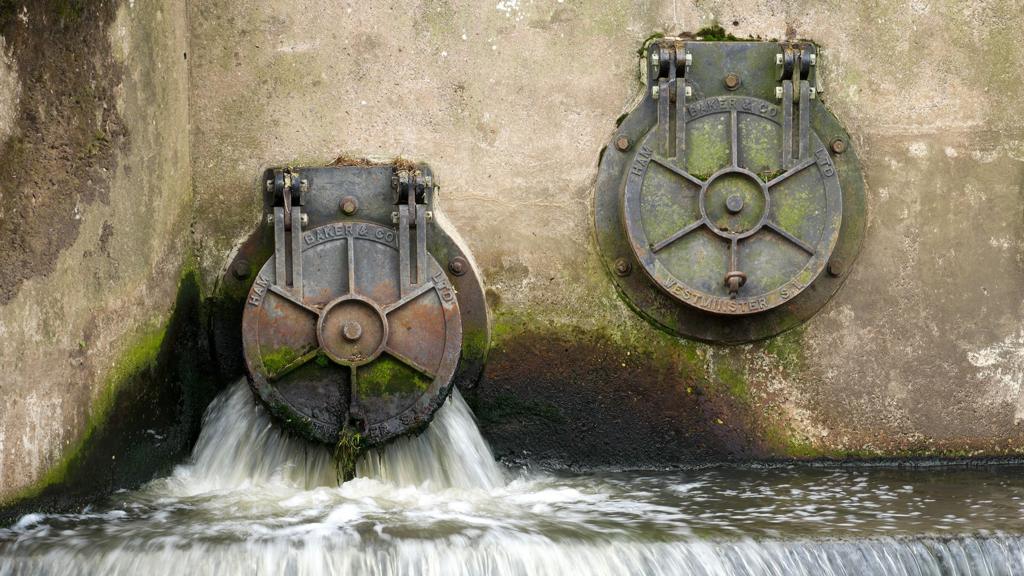The Environment Agency has reported a concerning 60% surge in serious pollution incidents attributed to water companies within a year.
The data reveals a record high of 2,801 pollution incidents across England in 2024, a notable increase from the 2,174 incidents recorded in 2023.
Among these, 75 incidents were classified as causing “serious or persistent” harm to fisheries, drinking water sources, and public health, marking a rise from 47 such incidents the previous year.
The Public Accounts Committee, a cross-party group of Members of Parliament, has denounced the level of pollution as “woeful,” further criticizing regulators for their perceived lack of accountability within the industry.
The release of this data from the Environment Agency precedes a significant review of the water industry, scheduled for publication on Monday.
Sir Jon Cunliffe, Chair of the Water Commission, is expected to outline recommendations aimed at improving both the environmental and financial performance of the sector.
A report by The Guardian on Friday suggested potential reforms, including the possibility of abolishing the regulator, Ofwat. A government spokesperson stated, “We are not going to comment on speculation.”
Commenting on the pollution data, Environment Secretary Steve Reed stated, “These figures are disgraceful and are a stark reminder of how years of underinvestment and weak regulation have led to record levels of sewage polluting our rivers.”
Water UK, an industry group, acknowledged shortcomings in the performance of certain companies.
A spokesperson for Water UK commented, “The Environment Agency is right to highlight underinvestment in infrastructure and maintenance as the major causes of these results.”
The industry’s target to reduce pollution incidents by 40% by 2025 against 2016 levels has been significantly missed, with 2024 levels exceeding double the original EA target.
Annually, the Environment Agency tracks pollution events, such as the release of untreated sewage from water company facilities into waterways.
Notably, three companies accounted for the majority of serious incidents: Thames Water (33), Southern Water (15), and Yorkshire Water (13).
River Action CEO James Wallace stated, “These figures expose a brutal truth. Serious pollution incidents are rising, sewage discharges remain rampant, and our rivers are spiralling toward ecological collapse. This is not just regulatory failure; it is a national disgrace.”
He further added, “Thames Water, the most egregious polluter, should be put into special administration to start the reset.”
The company experienced a doubling of serious pollution incidents and exhibited the poorest performance in reporting pollution events to the regulator.
England’s combined sewage system processes both rainfall and sewage. Increased rainfall last year may have overwhelmed some water company infrastructure.
However, despite rainfall variations, discharges resulting in serious pollution constitute breaches of permits and legal obligations.
While many incidents are self-reported by companies, nearly a quarter of sites inspected by the regulator last year were found to be in breach of their permits.
Sir Geoffrey Clifton-Brown, head of the Public Accounts Committee, strongly criticized the government and the Environment Agency for being “missing in action.”
He stated, “Regulators are overwhelmed by the number of prosecutions and appear unable to deter companies from acting unlawfully. Government must act now to strengthen regulators and support their efforts to hold companies to account.”
The Committee attributed the ongoing incidents to the failure of regulators, including the Environment Agency and Ofwat, to ensure water companies maintain essential infrastructure.
Estimates suggest that at the current rate, it would take companies 700 years to replace the entire water mains network.
Water UK attributed the failing infrastructure to the regulator’s refusal to permit the sector to raise bills for necessary investments.
The industry body spokesperson stated, “Investment in the sector has been suppressed with Ofwat prioritising short -term cuts to people’s water bills over the long-term resilience of the network. This is finally being put right, with a record £104 billion investment over the next 5-years.”
Consequently, consumer bills are projected to rise by an average of £123 annually, with potential increases of up to £224 for Southern Water customers.
However, Sir Geoffrey told the BBC that the lack of investment was the fault of the industry.
“I think over a number of years the water companies have been taking money out of the water system and channelling it away to their investors making their debts higher. Meaning, us, the customers are having a huge cost of that interest.
“Instead of paying that money towards improving capital investment, improving the capacity of sewage treatment plants or renewing leaky pipes,” he said.
On Monday, Sir Jon Cunliffe, the head of the Water Commission will publish his recommendations into how the government might turn things around.
In his preliminary findings last month he echoed the conclusions of the PAC that there were “deep-rooted, systemic and interlocking failures”, but was most critical of the regulators – the Environment Agency, Defra and Ofwat – for not providing proper oversight.
“We really need a regulator that is close to companies, that oversees them and monitors them continuously, as we do in financial services with the banks – not just so they can intervene early… but so they can support companies to improve,” he told BBC Breakfast in June.
His recommendations next week could include an overhaul or significant changes to those regulators.
The firm saw four serious incidents in 2024 and the highest number of incidents per 10,000km of sewer.
How much attention did you pay to what’s being going on in the world over the past seven days?
Long before our reliance on air-conditioning, Dubai’s old town kept people’s homes cool using a combination of clever techniques to lower the temperature.
The Environment Agency says it wants to “reassure” people that the environment will be protected.
The report says the industry must work with customers to help them change the way they use water.

